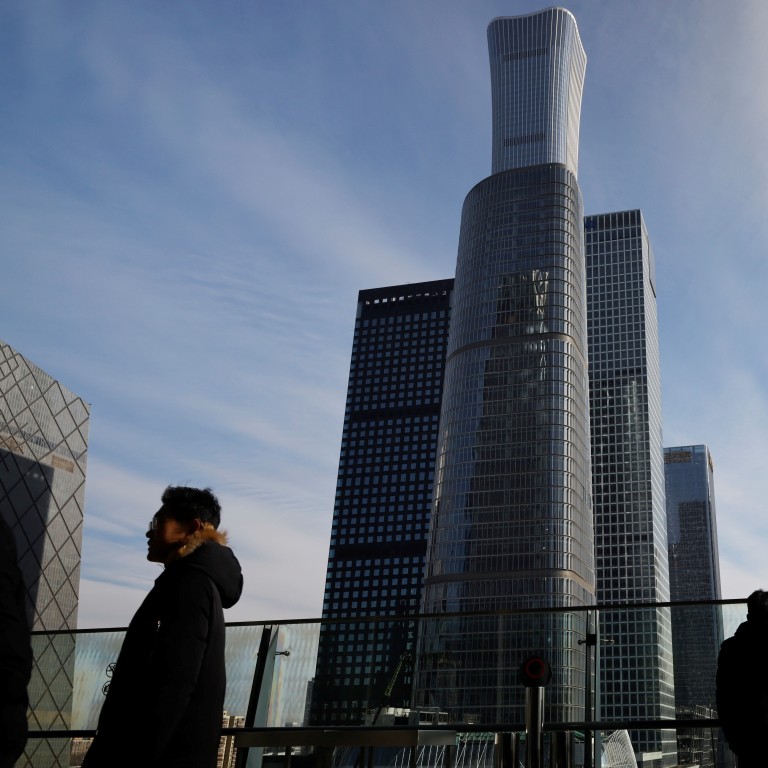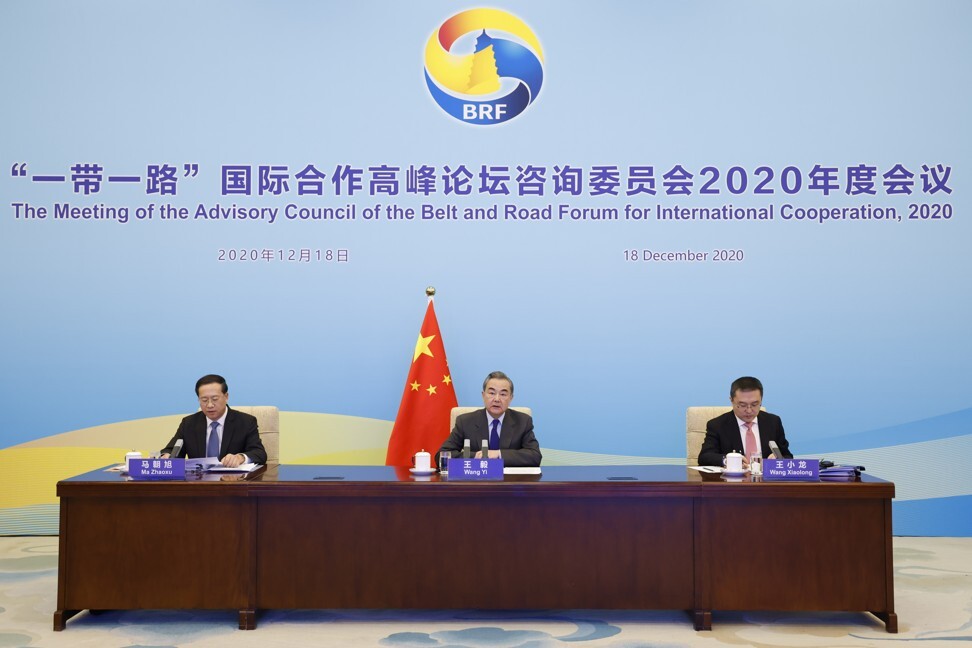
Belt and Road Initiative: China ups investment despite coronavirus and doubters
- Beijing’s backing of landmark scheme is increasing, foreign minister tells forum
- The digital Silk Road is up for special attention as China and partners work together on e-commerce, digital traffic corridors and information ports
Wang said Beijing would further promote fast tracks to ease the exchange of personnel and goods with belt and road partners to counteract the impact of the pandemic and also maintain supply chain security.
“Many [belt and road] projects have kept running without laying off employees during the Covid-19 pandemic on the premise of strictly controlling the epidemic situation. A number of new projects have been launched,” Wang said on Friday at the 2020 Belt and Road Forum for International Cooperation in Beijing.
“Amid the world economic recession, China’s overall investment in [the belt and road] has not dropped. Instead, it has shown a contrary trend of growth.”

He said the country’s outbound direct investment along the belt and road route rose 30 per cent in the first three quarters of this year, up from 2019.
According to data from China’s Ministry of Commerce, the growth put the investment above US$30 billion by September.
What is China’s Belt and Road Initiative all about?
Chinese companies signed US$80 billion in contracts with around 60 belt and road partner countries, accounting for more than half China’s total signed outbound contracted projects.
“No matter how the global situation changes, neither the international community’s demand for [the belt and road] nor the partners’ support for it has changed. China’s determination to promote [belt and road] international cooperation has not changed,” Wang said.
As Chinese tech companies face greater scrutiny and bans to access markets in developed countries, they are doubling down in emerging markets, raising criticism in the West.
In a speech last week, General Nick Carter, Britain’s chief of defence staff, said China’s digital ambition “will probably be the most influential element” of the initiative.
He said Beijing was trying to draw much of the developing world into “its sphere of influence by providing the digital infrastructure” with the potential to abet “totalitarian surveillance”.
Wang called for a constructive approach to promote the digital economy.
“Certain countries are politicising hi-tech issues, the essence of which is to maintain their own hi-tech monopoly position. This is not the constructive way,” he said.
“[The belt and road] is a platform for economic cooperation. It’s not and will never be a geopolitical tool. It is a chorus of all [the belt and road] partner countries rather than a solo by China.”
Wang Huiyao, president of Centre for China and Globalisation, a Beijing-based think tank, said the digital economy now accounted for more than 36 per cent of China’s GDP. He said digital infrastructure was an area China excelled at.
“Helping other countries build digital infrastructure does not equal China taking control of all this infrastructure. China simply wants to share its experience of success in fields like infrastructure building and logistics, which have a great contribution to China’s poverty alleviation. It’s an outdated cold war mentality to consider it as ‘digital authoritarianism’,” he said.

